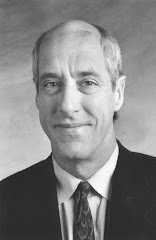An out-of-state government consultant testifying before the Streamlining Government Commission was asked what he thought of Louisiana's new ethics laws being ranked best in the country.
"It said you had the best rules," the consultant deadpanned. "It didn't say you always followed them."
Well put. Beyond bragging rights, it is hard to identify what Gov. Bobby Jindal's signature initiative, the overhaul of state ethics laws, has achieved, other than clearing out Ruth's Chris Steakhouse during legislative sessions by way of the $50 limit on what lobbyists can spend entertaining lawmakers.
In many cases, the difficulty with obeying new ethics rules has been understanding them.
For instance, current ethics cases involving two legislators and one sheriff stand to be decided not on their merits but on whether the Legislature intended for a change in the law to be retroactive or prospective, which could have been but wasn't cleared up with one sentence.
In the interest of fair play, the Legislature shortened the time period from two years to one for the Board of Ethics to bring charges after receiving a complaint.
The near mass resignation of the old board and the appointment of a new one ate up several months before the new members could get around to old cases. They eventually brought the charges within the old two-year window but beyond the new one-year deadline.
The accused officials argue that the new limit applies to them, while the Ethics Board holds that the old rules govern old cases.
Depending on how state courts eventually rule, the first dozen or so cases under the new ethics regime could be thrown out because the Legislature and the governor's lawyers screwed up the drafting of the laws.
The new procedures have other problems, which make justice needlessly elusive.
Ethics charges are no longer decided by the Board of Ethics but by panels of administrative law judges. It's been claimed that because the head of the Division of Administrative Law is appointed by the governor that she can be leaned on to protect Jindal's friends.
That's a twisted stretch.
The director, Ann Wise, first appointed by former Gov. Foster, is as ethical and independent a public servant as this state has. The administrative law judges who work for her are mostly career civil servants who hear thousands of cases each year involving employee-management disputes in state government.
They are as fair and capable as the governor's ethics board appointees in deciding cases. But that doesn't mean they should be doing so.
Legislators came up with using the ALJs in order to get away from having the ethics board act as prosecutor, judge and jury. But they should have thought that through more. Under the new law, the ethics board acts as kind of a grand jury in charging defendants, but once the ALJ renders a decision, the board is required to ratify the ruling, even if members don't agree with it.
Board chairman Frank Simoneaux intends to ask the Legislature to return decision-making to the board, but to have a separate department within the agency investigate and prosecute cases. That would clear up conflicts while restoring the board to its proper adjudicatory role instead of that of a ceremonial bystander.
Also, should the governor and Legislature revisit ethics, they might as well change those three troublesome words, "clear and convincing," that make the new process anything but.
The words were inserted into legislation to set a new standard of proof, meant to fall somewhere between "preponderance of evidence" in civil cases and "beyond reasonable doubt" in criminal cases. Trouble is, no one is quite sure where that somewhere is.
The standard-of-proof wording does not, as some critics claim, make ethics laws unenforceable, but neither does it make them clear. In most cases, the facts are not in dispute so much as is the interpretation of the law. So returning to "preponderance of evidence" would not change outcomes as much as it would re-instill some confidence in the system.
The governor need not worry that clarifying ethics laws would tarnish the gold standard he professes for them. But it sure would help make our best-ranked rules easier to follow.
Monday, September 21, 2009
Subscribe to:
Post Comments (Atom)

No comments:
Post a Comment